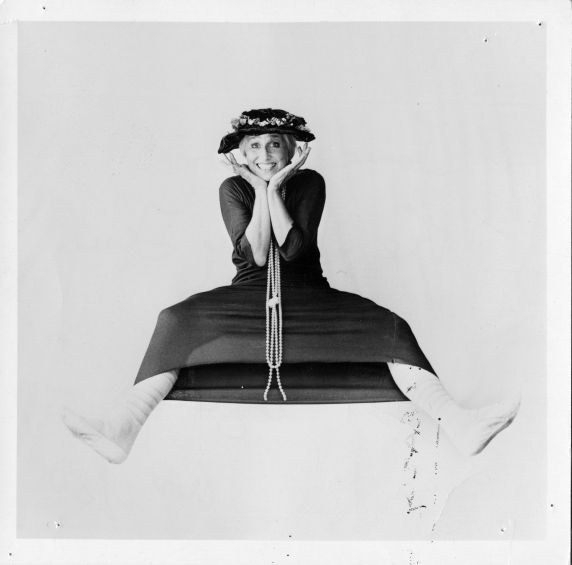In Memoriam: Harriet Berg, 1924-2025
The Reuther Library announces with sadness the death of Detroit cultural icon Harriet Berg on February 20, 2025.
More than 30 years ago, Harriet and her husband Irving Berg founded and endowed the Michigan Dance Archives (MDA) at the Reuther Library. It comprises the archival papers of Berg and several other Michigan dancers and dance groups. Berg was a strong promoter of the MDA and continually encouraged her colleagues to help it grow.
Summarizing Harriet Berg’s life is a challenge. Anyone who knew her agrees she was a force of nature. Her life was dedicated to dance—learning, teaching, choreographing, studying and performing its history, using dance to teach American history and Jewish culture, and inspiring others with her love of the arts. She mentored more than one generation of dancers in Detroit and Michigan who have become professionals, dedicated amateurs, or just lovers of dance and the arts.
During her career, Berg worked with and was inspired by the most renowned American dancers, including Isadora Duncan, Merce Cunningham, Twyla Tharp, Martha Graham and Louis Falco. She traveled across the U.S. and to Canada and Europe to participate in and teach workshops, perform with her dance companies and exchange ideas. She was part of the founding of the American Dance Festival in 1948 and attended each year thereafter, into her mid-90s.
Berg’s choreography took inspiration from a huge variety of sources: folk tales and songs from around the world, Biblical stories, Americana, Jewish and Israeli folk themes, French history, and Detroit history, in dance styles ranging from Renaissance and Baroque European to Sephardic and Middle Eastern, early American and 20th century popular, as well as modern dance. Her historic dance companies performed her works throughout Michigan and the Midwest, expressing through dance the lives and challenges of immigrants, settlers, explorers and notable figures like Madame Cadillac and Levi Strauss.
Berg’s energy and desire to introduce Detroiters and Michiganders to dance and to make Detroit and Southeast Michigan a hub of creativity in the arts was a passion ahead of its time, and in Detroit’s continuing arts renaissance Harriet Berg’s influence will be felt long after her passing.
Those wishing to honor Harriet Berg’s memory with a contribution to the Michigan Dance Archives can contact Katrina Rouan: dv5445@wayne.edu.


 Reddit
Reddit Facebook
Facebook LinkedIn
LinkedIn